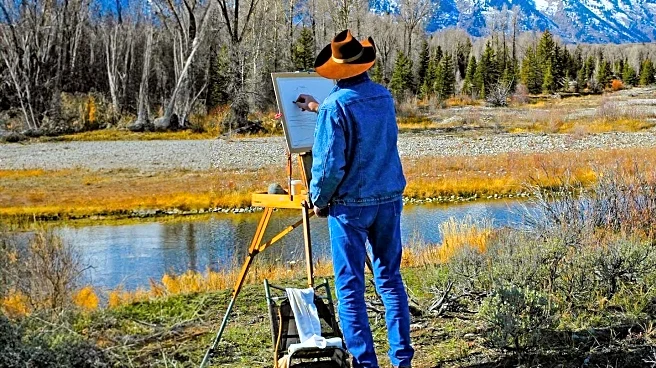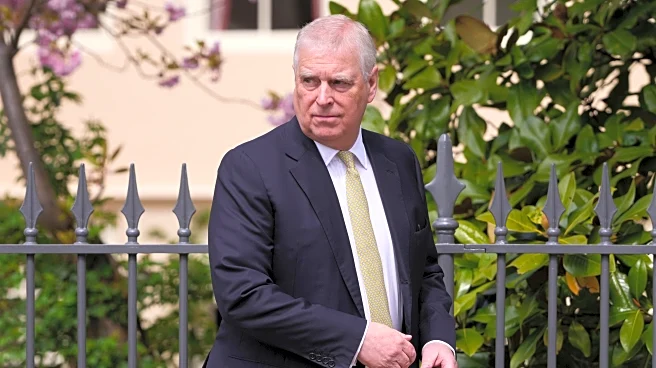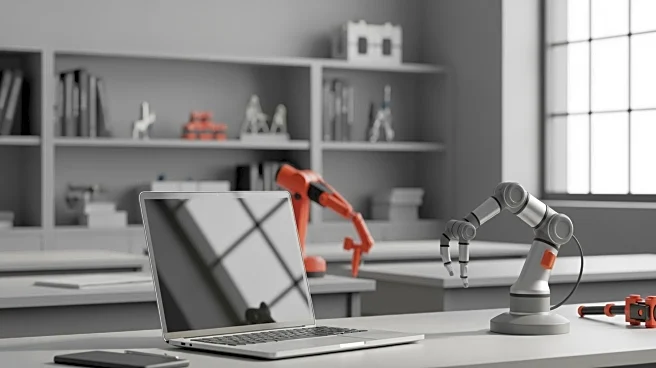What is the story about?
What's Happening?
Artists Tega Brain and Sam Lavigne are showcasing their exhibition 'How to Get to Zero' at Pioneer Works in Brooklyn, New York, which aims to engage visitors in climate activism through art. The exhibition features interactive installations like Cold Call, where visitors can distract fossil fuel executives by keeping them on the phone, and Offset, a marketplace for purchasing credits for acts that reduce emissions. The artists use humor and absurdity to highlight the challenges of climate change, drawing inspiration from activist stunts like those of The Yes Men. Their work encourages visitors to consider the impact of everyday actions on the environment.
Why It's Important?
Brain and Lavigne's exhibition underscores the role of art in raising awareness and prompting action on climate change. By using humor and interactive elements, the artists make complex environmental issues more accessible and engaging for the public. Their approach challenges traditional perceptions of art's role in activism, suggesting that creative interventions can contribute to meaningful change. The exhibition also highlights the importance of individual actions in addressing global challenges, encouraging visitors to reflect on their own contributions to environmental sustainability.
What's Next?
The exhibition will continue to run until December 14, offering more opportunities for visitors to engage with the installations and consider their role in climate activism. Brain and Lavigne's work may inspire other artists to explore similar themes, using art as a tool for social and environmental change. As discussions around climate change evolve, the artists' playful yet impactful approach could influence broader conversations about the intersection of art, activism, and environmental policy.
Beyond the Headlines
The exhibition's focus on 'expanded geoengineering' challenges conventional approaches to climate solutions, suggesting that small-scale, everyday actions can collectively make a significant impact. This perspective encourages a shift in how society views its role in addressing environmental issues, emphasizing the power of individual and community efforts. Brain and Lavigne's work also raises questions about the effectiveness of traditional activism, proposing that creativity and humor can be powerful tools in driving change.















